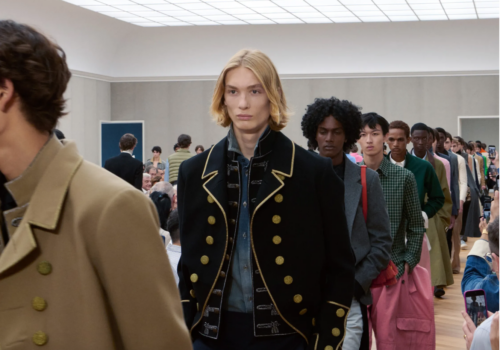“We’re Not Going Anywhere” We Spoke To 5 Trans Women In Belfast
Words: Izzy Copestake
Photography: Isabel Farrington
Last week, UK Supreme Court ruled that under the Equality Act 2010, “sex” refers to biological sex. While the ruling doesn’t legally apply in Northern Ireland, and its wider implications across the UK remain uncertain, it has sent a chilling message. Trans rights are under attack. Once again, trans women are being forced to defend their existence.
Misinformation about trans women and violence towards the community has been rising over recent years. In Northern Ireland the only NHS gender identity clinic is severely under-resourced, with just one doctor serving a long waiting list that stretches over seven years. Many are forced to seek life-saving medical support elsewhere, often at great personal and financial cost. Last year, puberty blockers were banned indefinitely, and recently, politicians from across Northern Ireland’s political spectrum have been emboldened to make openly transphobic comments, further stoking division and fear. This has intensified the sense of vulnerability for the trans community, especially in a place with a history of sectarian division.
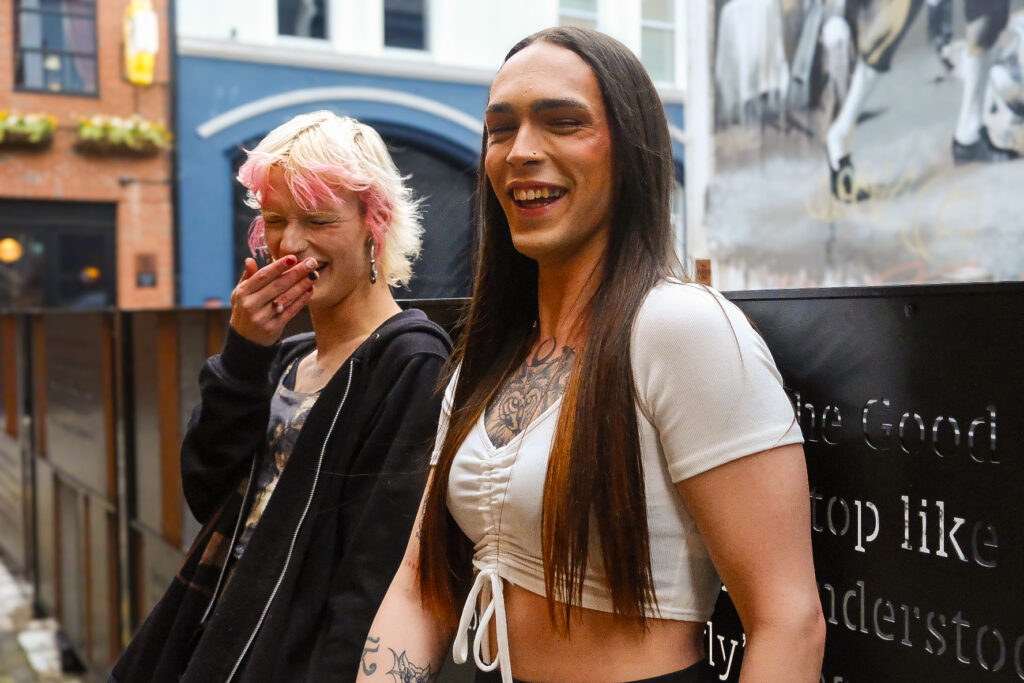
This Supreme Court ruling has sent shockwaves through the global trans community, raising urgent questions about legal protections, access to healthcare, and the right to live freely without constant scrutiny. For many, it signals a dangerous shift that could affect not only trans people’s rights but also the broader landscape for rights. If the bodies of trans women are politicised and legislated, who’s next? There is growing fear that this could pave the way for further attacks on women’s autonomy over their bodies, encouraging a system where the state dictates who can or cannot exist as they are.
But in Belfast, a city shaped by conflict and community, five trans women are doing more than surviving. They’re showing up for one another. They’re building chosen families. They’re living with a sense of humour, courage, and grit, and they’re refusing to be erased.
We spoke to Julia, Jessie, Ash, Tori, and Keighley about what it means to be trans in Northern Ireland today: about fear, but also about joy, solidarity, and the radical act of continuing to exist, loudly.
Keighley, 25
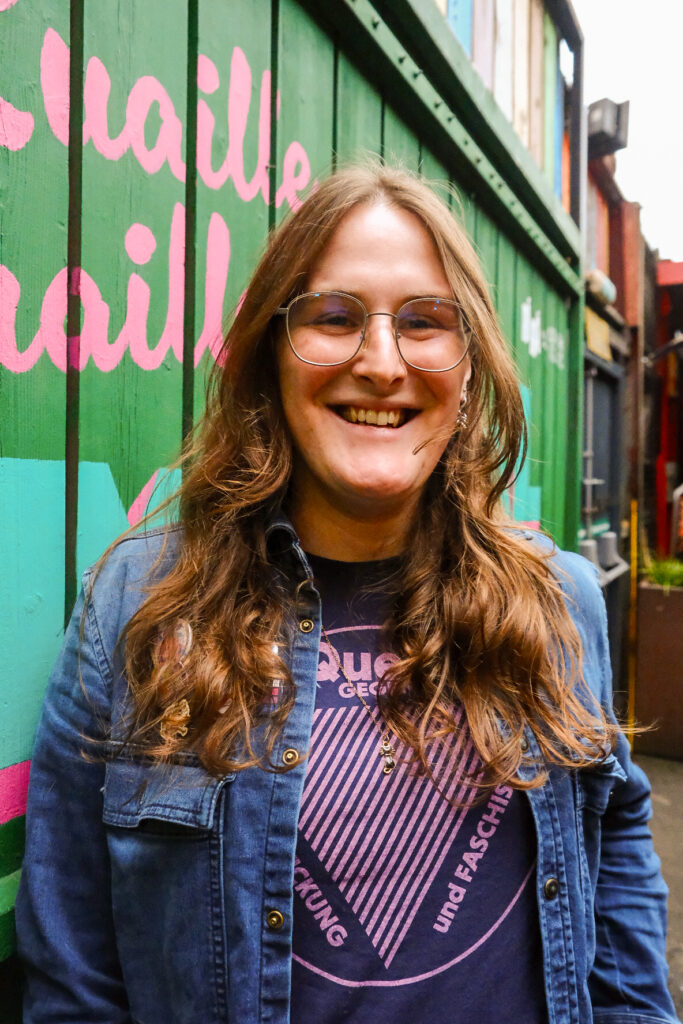
Keighley is a stand up comedian and political activist living in Belfast. You can check out her work at @keighley_comedy.
Have things gotten worse for trans women in recent years?
I think we did see a rise in acceptance for a while, but in the past five to seven years, things have definitely deteriorated. There’s been a rise in anti-trans attitudes, often tied to figures like Trump or Andrew Tate who reinforce these very narrow ideas of masculinity. That kind of toxic reinforcement has led to more rigid views about gender—and increased hostility.
A lot of these attacks on trans rights come from cis women. What’s your perspective on that?
I think people don’t realise that when you attack trans rights, you’re attacking everyone’s rights. These rigid binaries have kept everyone in cages. So tearing them down benefits all of us. But unfortunately, some people can’t, or won’t, see it that way.
What does this recent Supreme Court ruling mean for you personally?
It feels like a tipping point. It’s not just symbolic; the law is now being interpreted in ways that are overtly anti-trans. It also threatens medical privacy. That’s a huge concern, because if they can do it to trans people, they can do it to pregnant people, to immigrants—anyone.
What do you make of the discourse around this ruling?
There’s been a lot of solidarity, which is beautiful. But I don’t want pity—I want anger. I want people to be mad that this is happening.
“I don’t want pity—I want anger.”
For people who want to help, what would you recommend?
First—get educated. Read The Transgender Issue by Shon Faye, it’s brilliant. Get involved in activist groups, organize in your community, show up to protests. And organize at work too, demand that your union takes a pro-trans stance and supports us actively.
What’s your biggest fear right now?
I’d love to say spiders, but honestly? It’s the rise of the far right. As an activist, it feels like I’m constantly fighting, and lately, it’s starting to feel like that fight is becoming more hopeless. I worry about losing the rights and protections I do have—and what that means not just for trans people, but for women, immigrants, workers, and disabled people too.
What gives you hope?
The people. 20,000 people showed up in London to support trans rights. That massively outnumbered any far-right or anti-trans rallies. It shows that we do have numbers, that people are willing to stand up—even when it’s hard.
Julia, 24
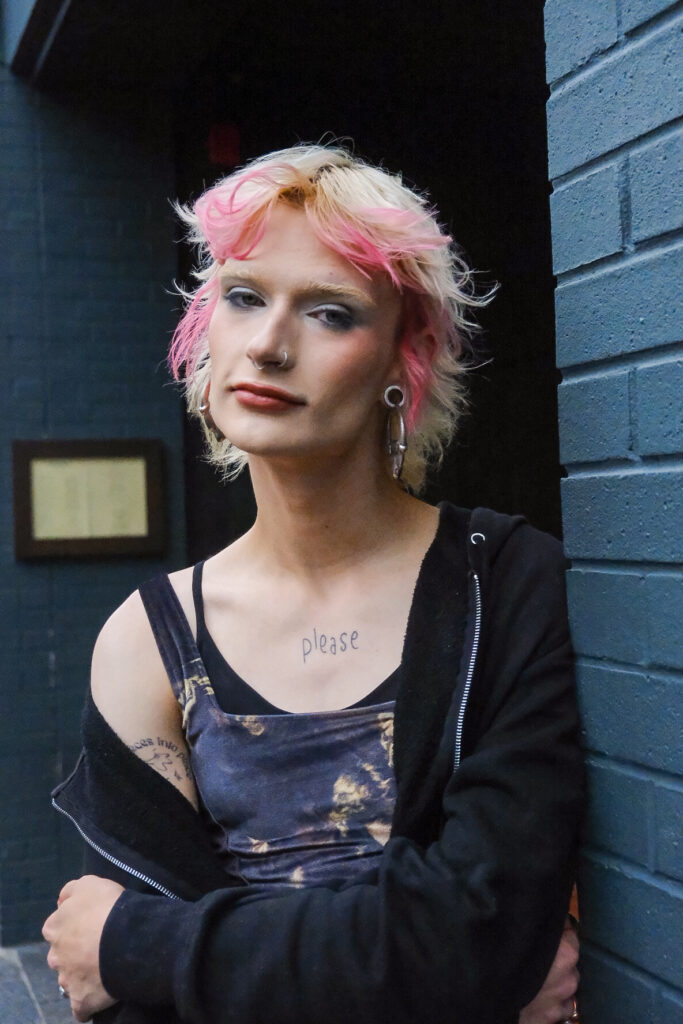
Julia has been transitioning medically for the last year, and socially for the last two.
Are you worried about how this law might impact healthcare?
Healthcare here is already awful. When I first started transitioning, I called all my doctors and they were no help. They referred me to our only clinic, and the waiting list is around seven years, if you’re lucky. I went to a private clinic in England, it’s amazing but extremely expensive.
With changes to laws and regulations, I worry—will this affect my access to hormones? Will delivery across borders still be possible? These meds are not optional. They’re life-saving.
And what do you wish people better understood about being a trans woman in Belfast?
In the North, it’s still very post-Troubles: suspicious, closed-off, and resistant to change. People here are still stuck in that “Catholic vs. Protestant” binary mindset. And now it feels like it’s everyone vs. trans people. Soon it’ll be everyone vs. queer people in general. We’re just the easy target right now.
I wish people understood that at the end of the day, we’re all just human. As RuPaul says, “We’re all born naked, and the rest is drag.” We’re all made of the same flesh and bones. And one day, we’ll all be the same bones in the ground.
“I wish people understood that at the end of the day, we’re all just human.”
There’s so much misinformation. I once posted something on Facebook, just my personal feelings. I only had local friends on there. I was at work when my best friend rang and said, “Take it down. The alt-right found it.” They had shared it into one of their groups. I was flooded with slurs, had to delete the post and privatize my account. The next morning, I got a no-caller-ID call telling me to kill myself. They called me a man. I had to change my number.
What’s your biggest fear right now?
Not knowing what people are thinking. That’s the scariest part. I’ve had to change my work schedule because even walking home at 7 p.m. in broad daylight feels dangerous. I’ve been yelled at, had things thrown at me, for just existing. A lot of it isn’t even because people know I’m trans. It’s because they can’t tell what I am.
“I’ve been yelled at, had things thrown at me, for just existing.”
Men have walked up to me asking, “What are you?” And it’s those moments where I genuinely don’t know what they’re about to do. That anxiety, every single time you step outside, it’s not a way to live. That fear—it’s constant. It’s exhausting. And I know I’m not alone in feeling that.
What gives you hope?
Community. My best friend has been with me since I was 12. She’s my sister. I’ve had to cut off some family for being violent and transphobic. That’s when I realized: family isn’t everything. Chosen family is what matters. Whether that’s your friends, coworkers, or strangers who get it—we protect each other.
Jessie, 49
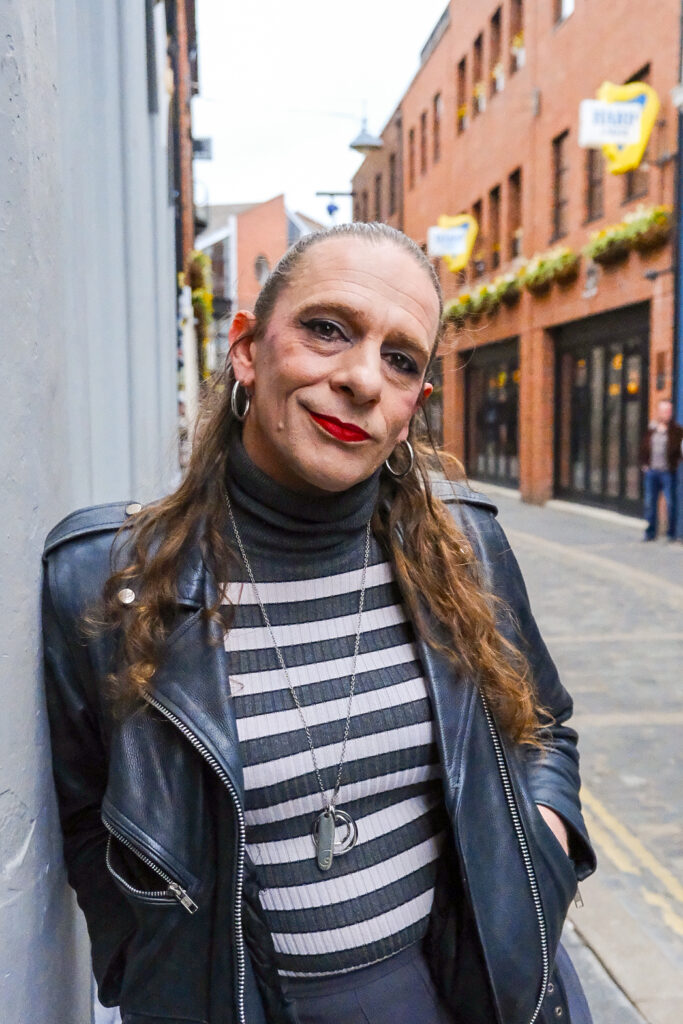
Jessie moved from England to Belfast over 17 years ago. She now works at one of the most beloved performing arts venues in the city, The Black Box, and does comedy across Belfast which you can check out at @murdersheherwrote. Julia first came out to Jessie, and describes her as her adoptive ma.
Have you found Belfast more accepting than your hometown?
I have a theory that Belfast feels bad for how shit it was to the queer community for a very long time, because Pride here is insane. It takes over the whole city. At home, Pride is contained to a tiny area. Obviously some people can make us uncomfortable, but it feels like Belfast adores its barely-allowed-to-exist gay community.
I didn’t transition until I’d moved here. I would never have probably got to this position if I’d stayed in England.
What does the Supreme Court ruling mean for you personally?
I can always tell when we’re in the news, even if I haven’t seen the news yet. Personally, a lot of people have looked a bit more, and then given me one of those sympathetic smiles. They’d see me and it would remind them there’s something nasty happening to people like me. I also see a lot more people rudely staring. This week someone fell over because they were so busy doing the rubberneck, they don’t know where they’re going! For me, mainly it’s just discomfort about the attention I now draw.
How do you feel about the discourse surrounding this decision?
It surprised me. Normally, if anything happens to us and it’s negative, it doesn’t really get to the front cover. It’s usually kept on about page 4, and people don’t worry about us too much.
This time it’s different. Everyone’s come forward in support, and most people have really made an effort. I’ve had lovely things said to me. My employers did a gorgeous post in support too.
“This time it’s different. Everyone’s come forward in support”
What is something you’d say to people who might want to help but don’t know how?
Do your research, and contact your local MP, MLA, TD. Let them know it could impact the way you vote, because they don’t do shit unless they think their job’s in trouble.
The other side does this really well. They rant and rave to the representatives and say how we’re terrifying and protect the children and “don’t let them cut the balls off that little boy.” That doesn’t happen. The adults can’t get operations, so obviously the kids can’t.
And if we’re having a wee rally—please come. It doesn’t hurt if there’s thousands of us.
“If we’re having a wee rally—please come. It doesn’t hurt if there’s thousands of us.”
What scares you?
What really scares me is if the political will was there, it’d be very easy to change things dramatically and scarily. We can be separated very easily now, and that’s what’s the most worrying.
What gives you hope?
An awful lot. I still say to this day: we won this fight years ago when Hayley was on Coronation Street for 12 years and no one gave a shit.
“We won this fight years ago when Hayley was on Coronation Street for 12 years and no one gave a shit.”
The fact that nearly everyone I see most days doesn’t care. That, and how beautiful all of the other trans boys and girls and the non-binary people are. We’re there for each other and we look after each other, [gestures to Julia and Tori] that’s what gives me hope.
Tori, 26
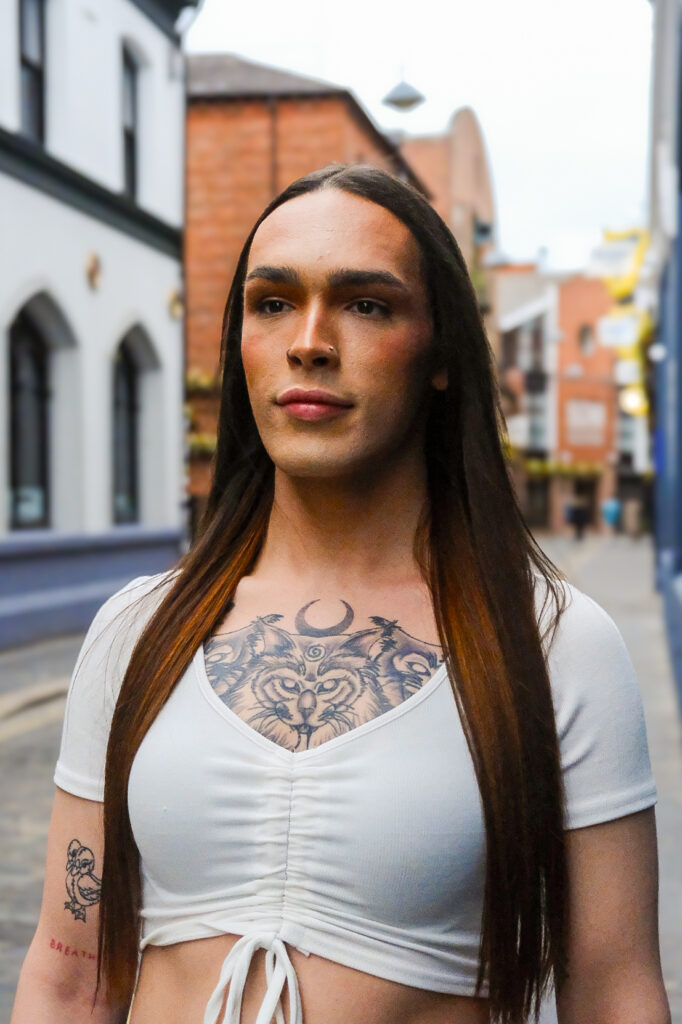
Tori works in healthcare and has been socially transitioned for nearly 6 years. Tori only started her medical transition 5 months ago, after being on the waiting list for the NHS and having to go private.
Have you noticed a shift in the atmosphere after the ruling?
Honestly, the shift has been happening even before the ruling. People feel more comfortable asking extremely personal questions, like they’re entitled to know things about my body. It’s always: what’s in your underwear? It’s dehumanising and completely disrespectful.
“It’s always: what’s in your underwear? It’s dehumanising and completely disrespectful.”
Has that made you feel scared?
Definitely. My partner worries every time I go out at night. I can’t even walk my dogs without people screaming things at me. And this is in the area I grew up in.
What would you say to someone reading this who wants to help trans women feel safer?
Just listen to us. We’re such a small minority—less than 1% of the population. It’s wild how much focus is placed on where we go to the bathroom or what we’re doing, especially when there are bigger issues affecting women as a whole.
Can you talk a bit more about the bathroom issue?
Sure. It’s always about trans women in bathrooms. People think men are pretending to be women to assault people in bathrooms, but the reality is, if men are going to assault women, they’re doing it regardless. I’m just going to pee and go home. That’s it. There’s no hidden agenda.
What do you think is at the root of this misunderstanding?
I think a lot of women are scared of men in general, and that fear is being misdirected. They think I woke up one day and decided to be a woman, but that’s not how it works. I was tucking from the age of 16, before I even knew what being trans meant. Once I found words for how I felt, it finally made sense.
“I think a lot of women are scared of men in general, and that fear is being misdirected.”
I figured out I was trans when I was 18, but I didn’t start telling anyone until I was 21. It took years, plus time on waiting lists and talking to psychologists to be diagnosed with gender dysphoria. It’s not an overnight thing.
Can you describe what gender dysphoria has felt like for you?
Growing up, I always felt like one of the girls. I was into “girly” things, always playing with makeup, that kind of stuff. But when puberty hit and my body started changing in ways I didn’t want, it became really confusing and distressing.
Facial hair, body hair—it all made me uncomfortable. I never felt fully comfortable in my body until I started hormones. Only recently, with those physical changes, have I started to feel like myself.
What gives you hope right now?
The support, from people in my life, and also from strangers online. I commented on a TikTok debate the other day, and people genuinely wanted to understand what it’s like to be me. That kind of willingness to listen and learn gives me hope.
Ash, 28
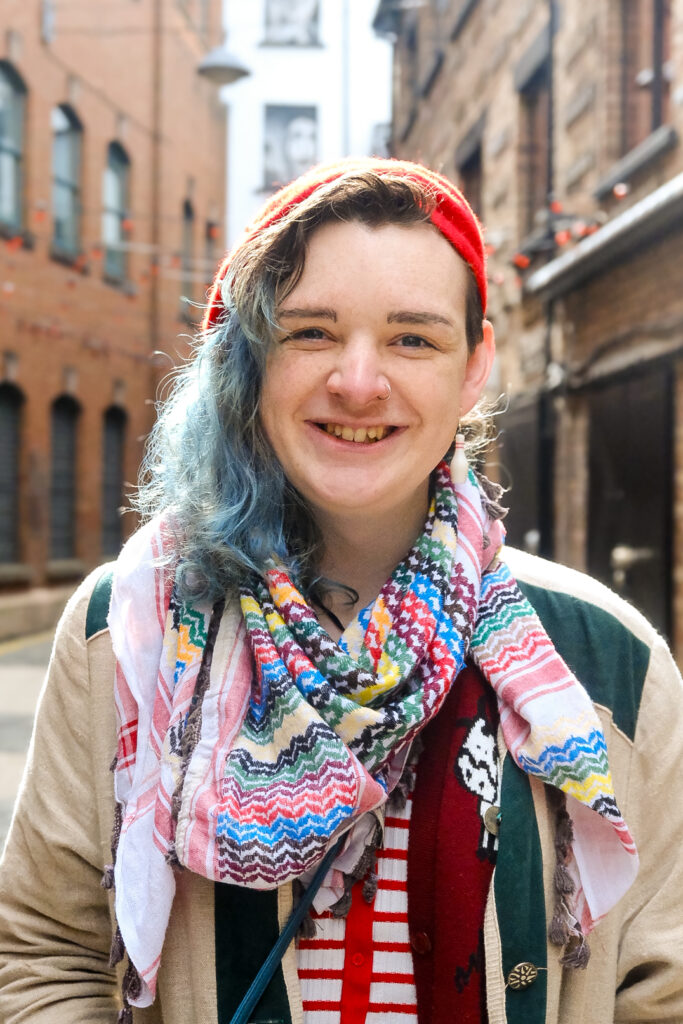
Ash works for a youth group and is active in the Green Party in Belfast.
What do you wish people understood better about being a trans woman living in Belfast?
People underestimate the effect of having your identity and rights constantly debated on the airwaves every day. A lot of people are surprised when I say that the situation is worse than it was 10 years ago. I think many people think being visible and being the topic of debate implies some sort of progression, but it’s not. Especially as it’s being used as the justification for stripping back our rights and any sense of humanity towards us.
So what does the Supreme Court ruling mean for you personally?
It has emboldened those who want to restrict trans people. It’s being used as a cultural weapon more than a legal one right now.
You can see it in the Republic of Ireland, even though they are under a completely different jurisdiction. For example, a Sinn Fein’s health spokesperson in the Republic tweeted that the ruling had brought clarity… despite it being a UK law. That is quite a significant movement from a party that 10 years ago supported gender self-identification.
“It’s being used as a cultural weapon more than a legal one right now.”
How can we help the trans community?
Be vocal and supportive.
How important is improving healthcare?
It’s very hard to describe to cisgender people the kind of discomfort that’s involved with gender dysphoria, and the extent to which if you’re not allowed to transition socially or medically, it feels suffocating. This can very often leads to self harm and very often suicide. It’s a matter of life and death.
“It’s a matter of life and death.”
What gives you hope?
The solidarity of our community is what we’ve always turned to. My friends are mostly trans artists and their defiant joy is what keeps me going. We have gone through something as bad before and we have come back from it. We remind each other that we’ve got each other’s backs and that we will always be here.
Show your support to the trans community by showing up to protests, posting support online, and contacting your local politicial.
Resources for Trans People in Northern Ireland:
Belfast Trans Resource Centre – Visit the BTRC’s Website
The Rainbow Project – Visit the Rainbow Project’s Website
Belfast Butterfly Club – Visit Butterfly club website
Cara-FriendNI – Visit CaraFriendNI website
GenderJam NI – Vist GenderJam website

